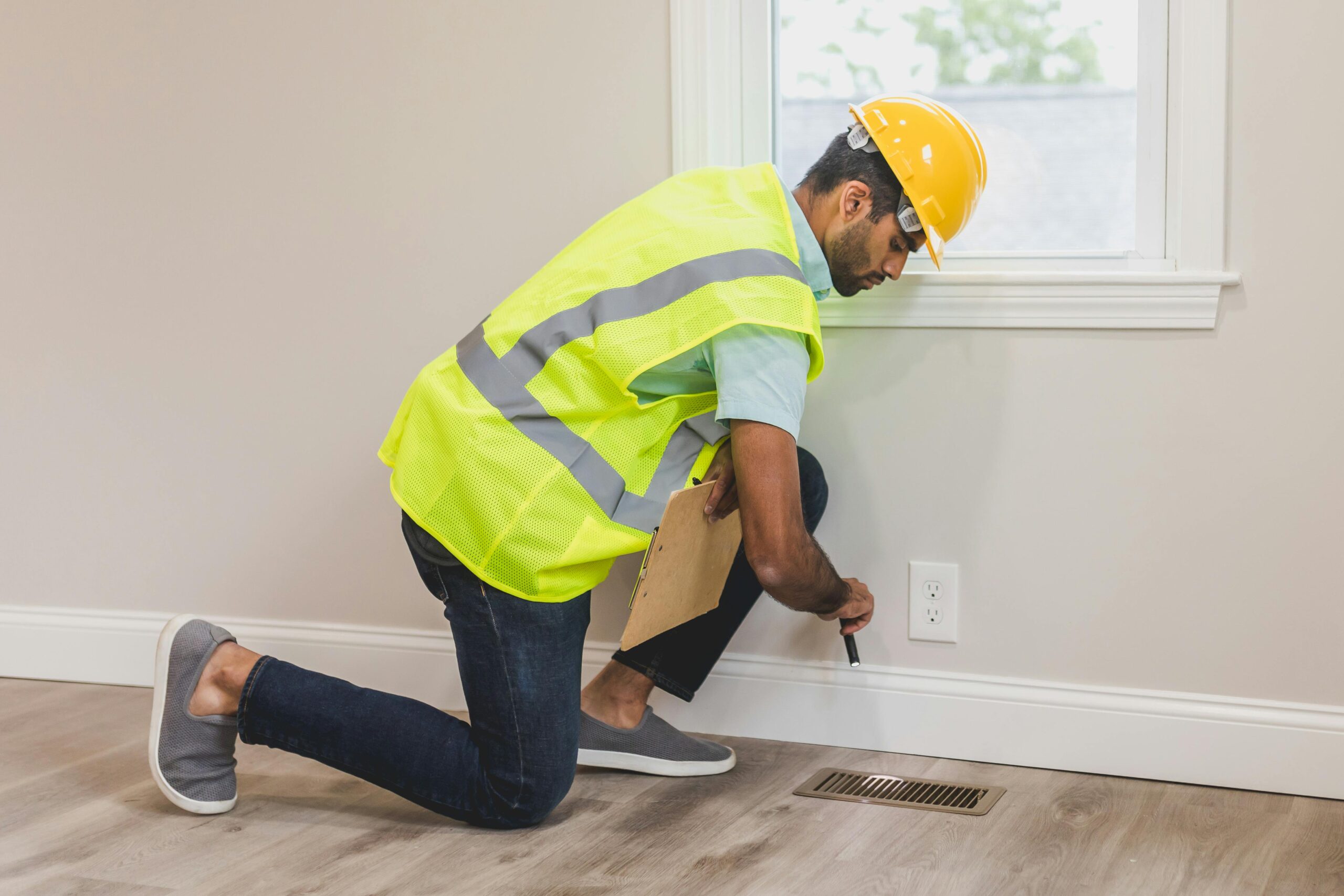Are you tired of sluggish performance on your Windows 11 system? Fixing HDD bottlenecks could be the key to unlocking faster performance today! In this article, we will dive deep into the common issues that cause your Windows 11 hard drive to lag, leaving you frustrated and unproductive. With the rise of demanding applications and multitasking, ensuring that your HDD runs smoothly is more crucial than ever. Are you ready to unleash the full potential of your Windows 11 device? Let’s explore some effective strategies to enhance your system’s performance!
Windows 11 HDD bottlenecks can lead to frustrating experiences, whether you’re gaming, streaming, or working on demanding projects. But what causes these bottlenecks in the first place? Often, it’s a mix of outdated drivers, fragmented files, and insufficient storage space. By understanding these factors, you can take actionable steps to resolve them. Did you know that simply defragmenting your hard drive can improve load times by up to 20%? That’s a significant boost for minimal effort!
In this insightful guide, we will share proven methods to fix HDD bottlenecks in Windows 11. From optimizing storage settings to updating drivers, we cover a range of solutions that will help you achieve that much-desired smooth performance. Whether you’re a casual user or a tech enthusiast, you’ll find tips that cater to your needs. Don’t let an underperforming HDD hold you back any longer. With our expert advice, you’ll be on your way to a faster, more efficient Windows 11 experience in no time!
Top 7 Proven Techniques to Eliminate HDD Bottlenecks in Windows 11 for Blazing Speed

If you’re using Windows 11 but your HDD feels like a turtle, you’re not alone. Many users find their systems running slow due to HDD bottlenecks. It’s important to know that this can really mess with your productivity. Thankfully, there are proven techniques to fix Windows 11 HDD bottlenecks and unlock faster performance today! Here are the top 7 methods you can try.
1. Upgrade to an SSD
One of the best ways to eliminate HDD bottlenecks is switching to a Solid State Drive (SSD). SSDs are way faster than traditional Hard Disk Drives. They use flash memory which allows for quicker data access. If you’ve never thought about it, now might be the time to consider an upgrade.
2. Disable Unnecessary Startup Programs
When Windows 11 boots up, several programs might start automatically. These programs can slow down your HDD. To fix this, you can:
- Press Ctrl + Shift + Esc to open Task Manager.
- Go to the Startup tab.
- Disable programs that you don’t need to run at startup.
This simple step can free up resources and improve your HDD’s performance.
3. Clean Up Disk Space
Having too much junk on your HDD can definitely slow things down. Regularly cleaning up your disk can help. Use Disk Cleanup tool:
- Search for “Disk Cleanup” in the Start menu.
- Select the drive you want to clean.
- Check the boxes for files to delete like temporary files and recycle bin items.
This can help you free up considerable space.
4. Defragment Your Hard Drive
Defragmentation reorganizes the data on your HDD, making it easier for the system to access it. Windows 11 has a built-in defragmentation tool. You can find it by typing “Defragment” in the search bar. Running this tool once in a while helps maintain your HDD’s speed.
5. Check for Malware
Sometimes, bottlenecks can be caused by malware that slows down your computer. Make sure you have a good antivirus installed. Run regular scans to keep your system clean. You can use Windows Defender or any other trusted antivirus software.
6. Update Drivers and Windows
Outdated drivers can cause performance issues too. Make sure your system is up to date. Go to Settings > Windows Update and check for updates. For drivers, you can check Device Manager, and update any that are outdated. Keeping everything updated can significantly enhance performance.
7. Adjust Virtual Memory Settings
Windows uses a portion of your HDD as virtual memory, and sometimes it needs a little tweak. To adjust this, follow these steps:
- Right-click on “This PC” and select “Properties.”
- Click on “Advanced system settings.”
- Under the Performance section, click on “Settings.”
- Go to the Advanced tab and click on “Change” under Virtual memory.
Make sure the paging file is set to be managed by Windows, or set a custom size if you prefer.
By implementing these techniques, you can effectively fix Windows 11 HDD bottlenecks and enhance your system performance. You don’t have to live with sluggish speeds anymore! Regular maintenance and smart upgrades go a long way. Whether you choose to clean up, defragment, or upgrade to an SSD, you’ll notice a significant difference in your computer’s responsiveness. So what are you waiting for? Start optimizing your system today!
Is Your Windows 11 Running Slow? 5 Essential Tips to Fix HDD Bottlenecks Today!

Is your Windows 11 running slow? You’re not alone. Many users experience sluggish performance, particularly if they’re using traditional hard disk drives (HDDs). If your device is struggling, it might be time to fix Windows 11 HDD bottlenecks, optimizing your performance and making your digital life a lot easier. Here’s five essential tips to fix those bottlenecks and unlock faster performance today!
1. Check for Disk Usage Spikes
One of the first things you ought to do is check your disk usage. Sometimes, background processes can hog your HDD resources. You can do this by opening the Task Manager (Ctrl + Shift + Esc) and checking the Performance tab. If you see that disk usage is at 100% consistently, it’s a sign that something is wrong. Look for processes that are taking up the most disk space and consider terminating or disabling them.
2. Disable Startup Programs
Many programs automatically start when your computer boots up, and this can cause your HDD to slow down. To fix this, you can manage your startup programs through the Task Manager. Navigate to the Startup tab and disable any unnecessary applications. This simple tweak can significantly improve your boot time and overall system performance.
3. Run Disk Cleanup
Windows 11 comes with a built-in Disk Cleanup tool that can help you free up space on your HDD. Over time, temporary files, system files, and other junk can accumulate and slow down your computer. By running Disk Cleanup, you can remove these unnecessary files. Here’s how you can do it:
- Press Windows + S to open the search bar.
- Type “Disk Cleanup” and select the tool from the results.
- Choose the drive you want to clean (usually C:).
- Select the files you want to delete and click OK.
4. Optimize Your HDD
Another excellent way to improve the performance of your Windows 11 system is by optimizing your HDD. Windows 11 has a built-in tool called Optimize Drives that can help you defragment your HDD and organize data more efficiently. Here’s how you can access it:
- Search for “Defragment and Optimize Drives” in the Windows search bar.
- Select your HDD from the list and click on Optimize.
This process can take some time, especially if your drive is large, but it often leads to noticeable performance improvements.
5. Upgrade to an SSD
If you’ve tried all the tips above but still find your Windows 11 system slow, it may be time for a hardware upgrade. Solid-state drives (SSDs) are significantly faster than traditional HDDs, providing much quicker boot and load times. While this is the most expensive solution, it can bring your system back to life. Consider cloning your existing HDD to an SSD if you don’t want to lose any data.
Quick Tips Summary
- Monitor Disk Usage: Use Task Manager to check for resource-heavy processes.
- Manage Startup Programs: Disable unnecessary applications to speed up boot time.
- Utilize Disk Cleanup: Regularly remove junk files to free up space.
- Optimize Drives: Use built-in tools to defragment your HDD.
- Consider SSD Upgrade: For maximum performance, upgrade to an SSD.
In conclusion, addressing HDD bottlenecks in Windows 11 is crucial for improving your overall user experience. By implementing these five essential tips, you can unlock faster performance today and enjoy a smoother computing experience. Don’t let a slow HDD hold you back — take action now!
Unlocking Speed: How to Identify and Resolve HDD Bottlenecks in Windows 11

Unlocking Speed: How to Identify and Resolve HDD Bottlenecks in Windows 11
Are you tired of your Windows 11 PC running slower than a snail? Many users experience frustrating performance issues, often because of HDD bottlenecks. Understanding this problem is key to unlocking your computer’s full potential. In this article, we’ll explore how to identify and fix Windows 11 HDD bottlenecks, helping you achieve faster performance today.
What is an HDD Bottleneck?
A hard disk drive (HDD) bottleneck occurs when your drive cannot keep up with the demands of your operating system and applications. This can lead to slow boot times, lagging applications, and long file transfer times. Knowing the signs of an HDD bottleneck is important. Here are some common symptoms:
- Slow startup and shutdown times
- Long loading times for applications
- Frequent freezing or stuttering during tasks
- High disk usage percentage in Task Manager
How to Identify HDD Bottlenecks
Identifying an HDD bottleneck in Windows 11 is simpler than you might think. First, you can use the built-in Task Manager. Here’s how you can do it:
- Press Ctrl + Shift + Esc to open Task Manager.
- Click on the Performance tab.
- Select Disk to see real-time disk usage.
If your disk usage is consistently near or at 100%, it’s likely you are experiencing a bottleneck. There are also third-party tools like CrystalDiskInfo or HD Tune that can provide deeper insights into your drive’s performance.
Fixing Windows 11 HDD Bottlenecks
Once you’ve identified the bottleneck, it’s time to take action. Below are some effective methods to resolve HDD bottlenecks:
Defragment Your Hard Drive: Windows 11 automatically defragments HDDs, but you can do it manually too. Just search for “Defragment and Optimize Drives” in the start menu and select your drive to optimize it.
Check for Malware: Malware can significantly slow down your hard drive. Running a full system scan with Windows Defender or a trusted antivirus can help.
Update Drivers: Outdated or corrupted drivers can also cause performance issues. Make sure your storage drivers are up to date by visiting the manufacturer’s website or using Windows Update.
Disable Unnecessary Startup Programs: Many programs run on startup that you might not need. Open Task Manager, go to the Startup tab, and disable any unnecessary applications.
Upgrade to an SSD: If you are still using an HDD, consider upgrading to a Solid State Drive (SSD). SSDs are significantly faster and can greatly improve your system’s performance.
Compare HDD vs. SSD Performance
| Feature | HDD | SSD |
|---|---|---|
| Speed | Slower (100-160 MB/s) | Faster (200-5000 MB/s) |
| Durability | More prone to damage | More durable |
| Noise | Noisy (spinning disks) | Silent |
| Cost per GB | Lower cost | Higher cost |
Additional Tips to Improve HDD Performance
- Clean Up Disk Space: Use the built-in Disk Cleanup tool to remove unnecessary files that may slow down your hard drive.
- Check Disk Health: Use the command prompt and type
chkdsk /fto check for errors on your disk. - Manage Virtual Memory: Adjust your virtual memory settings to improve performance. Go to System Properties > Advanced > Performance Settings > Advanced > Virtual Memory.
By following these steps, you can effectively fix Windows 11 HDD bottlenecks and enjoy a smoother computing experience. Remember, regular maintenance can go a long way in keeping your system fast and responsive. So don’t wait, start optimizing your HDD today!
The Ultimate Guide to Speeding Up Windows 11: 6 Steps to Fix HDD Bottlenecks

If your Windows 11 computer is slow, you might be facing HDD bottlenecks. Many users don’t realize that their hard drive could be the reason behind sluggish performance. It can be frustrating, but don’t worry! This guide will help you speed up your Windows 11 system with just a few steps. With these tips, you can unlock faster performance today.
Understanding HDD Bottlenecks
HDD bottlenecks happen when your hard drive can’t keep up with the demands of your operating system and applications. This often leads to long load times, lagging programs, and an overall sluggish experience. Knowing the signs of HDD issues is crucial. Some common symptoms includes:
- Slow boot times
- Frequent freezing or crashing
- Long application loading times
- System freezes during heavy tasks
These issues often are a result of fragmentation, insufficient storage space, or even outdated hardware. Understanding these factors is essential in fixing Windows 11 HDD bottlenecks.
Step 1: Check Disk Space
First things first, check how much space you have left on your hard drive. If your drive is more than 80% full, it can lead to performance drops. Here’s how to check:
- Open “This PC.”
- Right-click on your HDD.
- Select “Properties.”
If the disk space is low, consider deleting unnecessary files or moving them to an external drive.
Step 2: Defragment Your Hard Drive
Defragmentation is the process of reorganizing the data on your hard drive so that related pieces are stored close together. This can significantly improve access times. You can defrag your HDD by:
- Searching for “Defragment and Optimize Drives” in the start menu.
- Selecting your HDD.
- Clicking “Optimize.”
Windows 11 automatically runs this periodically, but manual defragmentation can help too, especially if you haven’t done it in a while.
Step 3: Disable Startup Programs
Too many programs starting up at boot can slow down your system. To manage startup programs, do the following:
- Press Ctrl + Shift + Esc to open Task Manager.
- Click on the “Startup” tab.
- Disable any programs that you don’t need at startup.
This simple step can drastically improve boot times.
Step 4: Run Disk Cleanup
Cleaning up unnecessary files can free up valuable space and improve speed. Windows has a built-in tool for this:
- Search for “Disk Cleanup” in the start menu.
- Select your HDD.
- Check the boxes for the types of files you want to delete, like temporary files or system files.
- Click “OK.”
This can remove junk files that slow down your computer.
Step 5: Update Drivers
Outdated drivers can cause performance issues. Make sure all your device drivers are up to date. To do this:
- Right-click on the Start button.
- Select “Device Manager.”
- Right-click on each device and choose “Update driver.”
Keeping your drivers updated ensures that your system runs efficiently.
Step 6: Consider Upgrading to an SSD
If your HDD is still slow after trying the above steps, it might be time to consider an upgrade. Solid State Drives (SSDs) are significantly faster than traditional hard drives. They can reduce loading times and improve overall performance. Many users find that upgrading to an SSD is one of the best investments they made for their PCs.
Speeding up Windows 11 is achievable with the right steps. By following these six strategies, you can fix HDD bottlenecks and enjoy a smoother computing experience. Don’t let a slow hard drive hold you back; take action today!
Are HDD Bottlenecks Draining Your Productivity? 8 Quick Fixes for Windows 11 Users

Are HDD Bottlenecks Draining Your Productivity? 8 Quick Fixes for Windows 11 Users
In today’s fast-paced digital world, the performance of your computer can greatly impact your productivity. If you find your Windows 11 machine sluggish and unresponsive, it could be due to HDD bottlenecks. These bottlenecks occur when your hard drive can’t keep up with the demands of your system, causing frustrating delays. Let’s explore why this happens and how you can fix it quickly.
Understanding HDD Bottlenecks
Hard Disk Drives (HDDs) are traditional storage devices that, while reliable, can be slow compared to modern alternatives like Solid State Drives (SSDs). When your HDD struggles to read or write data fast enough, it slows down your whole system. It’s a common issue, especially in older computers or those filled with large files. A 2019 study found that nearly 70% of users experienced performance drops linked to HDD issues. So, if you feel your productivity is getting hit, you may be onto something.
1. Defragment Your HDD
Defragmentation is the process of reorganizing the data stored on your HDD so that files are stored in contiguous sections. This can greatly improve speed. You can do this by searching for “Defragment and Optimize Drives” in Windows 11. Run the tool and select your HDD to optimize it.
2. Disable Startup Programs
Too many programs launching at startup can slow down your boot time and overall performance. To manage startup programs, press Ctrl + Shift + Esc to open Task Manager. Navigate to the “Startup” tab and disable any unnecessary applications.
3. Upgrade Your RAM
Sometimes, your system may be using the HDD for memory swapping due to insufficient RAM. Upgrading your RAM can reduce the need for this and improve performance. Check your system specifications and buy compatible RAM sticks to boost your memory.
4. Use Storage Sense
Windows 11 includes a feature called Storage Sense that automatically frees up space by deleting temporary files and content you don’t need. Go to Settings > System > Storage and enable Storage Sense for better management of your HDD.
5. Clean Up Disk Space
Over time, your HDD fills up with unnecessary files. Use Disk Cleanup to reclaim space. Search for “Disk Cleanup” in the Start menu, select your HDD, and check all the boxes for files to be deleted. This simple step can speed up your system.
6. Check for Malware
Malware can significantly slow down your computer by using up system resources. Regularly running a malware scan with Windows Defender or any trusted antivirus program can help to keep your system running smoothly.
7. Move Files to External Storage
If your HDD is nearing its capacity, consider moving large files, like videos and photos, to an external storage device. This can free up space and potentially speed up your local HDD performance.
8. Consider Upgrading to an SSD
If you’re still facing issues after trying the above fixes, it may be time to consider an SSD upgrade. While they can be more expensive, SSDs offer significantly faster read and write speeds compared to HDDs. This can result in a noticeable performance boost for your Windows 11 system.
In summary, HDD bottlenecks can indeed drain your productivity, but with these eight quick fixes for Windows 11 users, you can unlock faster performance today. By taking some simple steps, you can ensure that your computer runs more efficiently, allowing you to focus on what matters most—getting your work done. Don’t let slow load times hold you back from your full potential!
Conclusion
In conclusion, addressing HDD bottlenecks in Windows 11 is essential for enhancing system performance and ensuring a smoother user experience. We explored several effective strategies, including upgrading to an SSD, optimizing disk settings, managing startup programs, and utilizing built-in Windows tools like Disk Cleanup and Defragmentation. Additionally, keeping your system updated and monitoring disk health can prevent potential slowdowns. By implementing these solutions, you can significantly improve your computer’s efficiency and responsiveness. If you’re experiencing sluggish performance, don’t hesitate to take action—evaluate your current setup and consider these tips to optimize your HDD performance. Remember, a well-maintained system not only boosts productivity but also prolongs the life of your hardware. Start applying these strategies today and enjoy a faster, more reliable Windows 11 experience!

